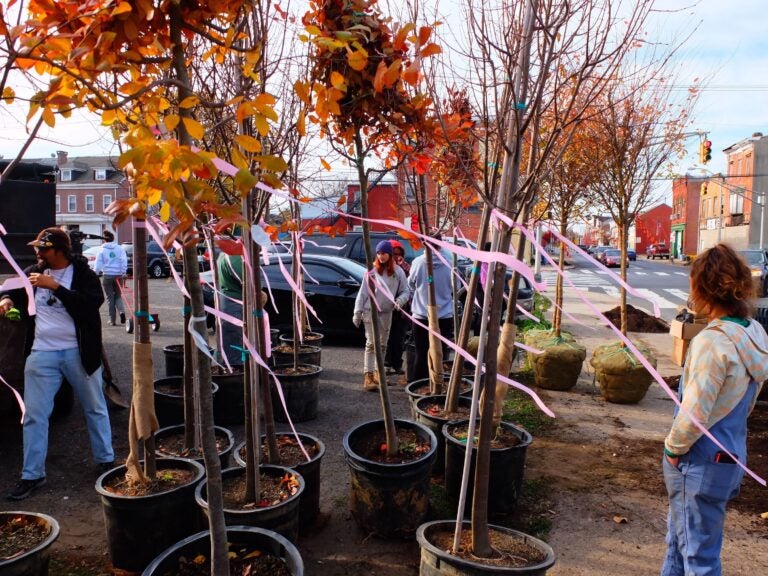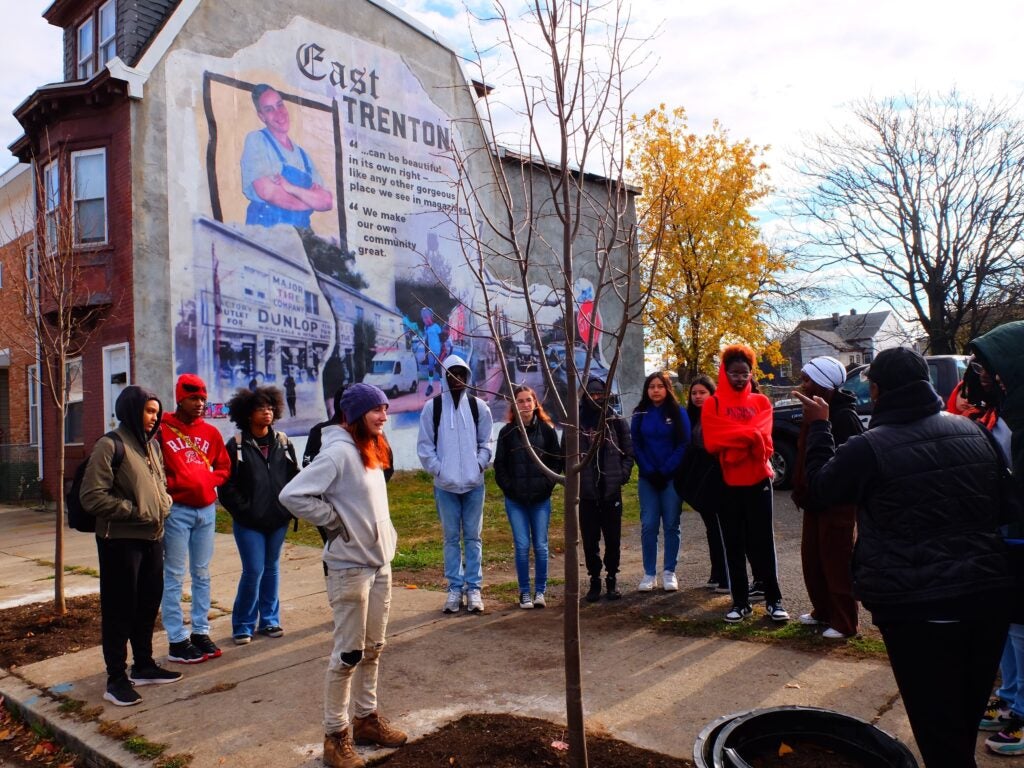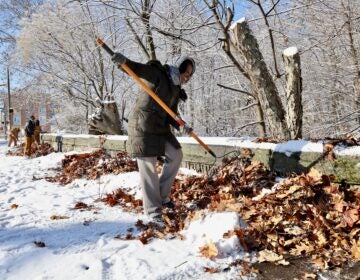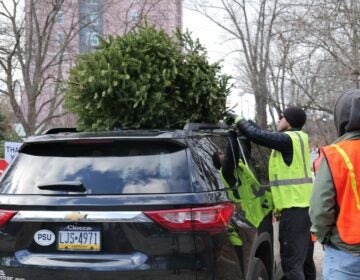Efforts are underway to help beautify and protect New Jersey’s urban areas with trees
New Jersey environmental groups are working together to plant more trees in urban areas.

A total of 46 trees were planted along 6 different blocks. (Jay Watson/ New Jersey Conservation Foundation)
This story is part of the WHYY News Climate Desk, bringing you news and solutions for our changing region.
From the Poconos to the Jersey Shore to the mouth of the Delaware Bay, what do you want to know about climate change? What would you like us to cover? Get in touch.
Efforts are advancing to help protect and beautify a growing number of New Jersey’s urban areas.
Lack of tree coverage in inner city neighborhoods exacerbates the heat island effect, which can turn deadly in summer months. New Jersey’s annual “State of the Climate Report,” released earlier this year, warns the increased temperatures from global warming could cause more heat-related hospitalizations and deaths, especially in urban areas like Trenton, Camden and Newark. EPA research shows boosting urban forests can lower average temperatures by 2.9° F.
As part of this effort, several environmental and civic groups and organizations worked together in November to plant 46 trees within a 6 block area close to the intersection of North Olden and Clinton Avenues in East Trenton.
“Filtering the air, pollutants from the air, reducing stormwater runoff, cooling off these heat islands are all things we’re really focused on to try to have these communities have a high quality of existence,” said Jay Watson, co-executive director of New Jersey Conservation Foundation.

He said student volunteers helped to plant the trees and “they will be carrying the message into the neighborhoods and on their own streets to talk about the values of these green investments.”
A combination of funds from the National Fish and Wildlife Foundation, the USDA Forest Service, the city of Trenton, and private foundations was used to buy the trees. Fifty volunteers pitched in, both from the community and organizations like the Outdoor Equity Alliance and their student tree ambassadors.
“We really believe we need to have a conversation with everybody in the community before we plant any tree in front of anyone’s home,” said Watson, “because we want to make sure they are going to appreciate these projects once we get them in the ground and help us make sure these trees are established properly.”
Stacy Denton, who lives in the neighborhood, said this will help to beautify things.
“It shows that we care about our community, we are about the atmosphere, we care about how our neighborhood looks,” she said, “plus the area is quieter, cooler, we spend a lot less money on air conditioning [during the summer].”
Pam Zipse, executive director of the New Jersey Tree Foundation, believes planting trees in urban areas helps to build community because “we already know we have buy-in from the residents because they’ve asked us to be there, and they’ve agreed to take care of the trees that we plant.”
She pointed out “walking under tree cover actually changes our brain chemistry, to make us feel more calm, it relieves stress, it makes people happier.”
She said more than 900 square feet of concrete was cut and removed to make way for the planting pits for the trees.
“Providing shade so that you can go for a walk or sit outside on your front step and not be in direct sunlight makes a big difference to people’s quality of life, ” she said.
Littleleaf linden, black gum, lacebark elm, and honey locust trees were planted. The average cost per tree was about $400.
Watson said the New Jersey Conservation Foundation has been working on different land preservation projects for the past 60 years, and projects are currently underway in other parts of Trenton, as well as Camden, Elizabeth, and Jersey City.
“We really want to bring our capacity and resources to do good in communities that historically have been disadvantaged or underserved,” he said.
He added “this can really change the quality of life for these neighborhoods and for future generations for many years.” The New Jersey Tree Foundation, which was established in 1998, focuses on tree-planting projects in cities all over the Garden State.
Denton, who is also the director of the Trio Upward Bound program at Mercer County Community College, helped organize 21 students to assist in the tree-planting project.
“I think this is something they are going to value, it’s going to be a legacy,” she said, “something the students can share with siblings and their friends.”
The 46 trees were planted the second week of November over a two-day period.
Those involved in the project included staff from the New Jersey Department of Environmental Protection Urban and Community Forestry group; East Trenton Collaborative; Isles Climate Corp; Delaware Riverkeeper Network; Urban Promise Trenton and a large group of Princeton University students from the Princeton Conservation Society.
WHYY is your source for fact-based, in-depth journalism and information. As a nonprofit organization, we rely on financial support from readers like you. Please give today.






